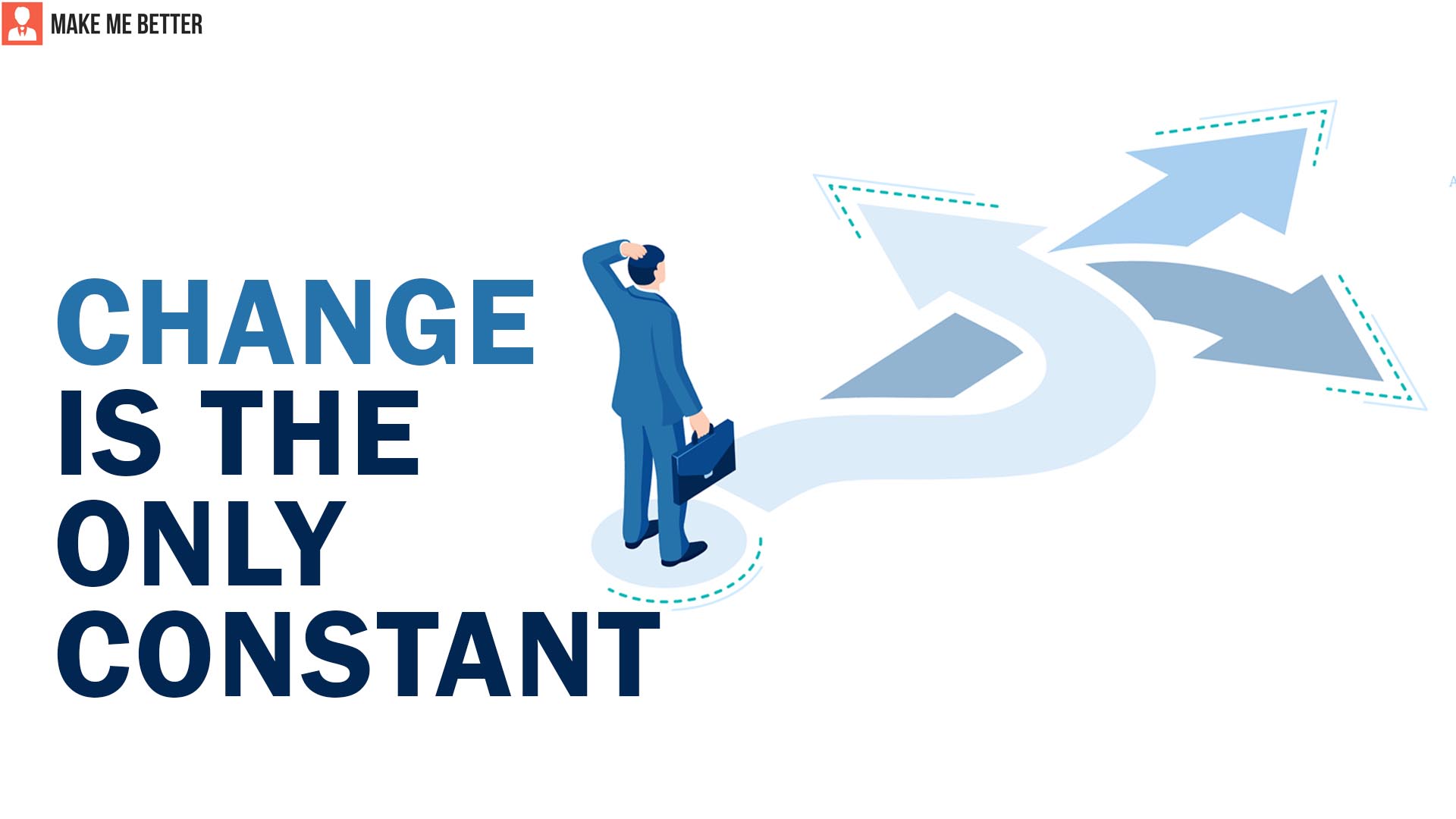
Introduction:
"Change is the only constant" is a popular phrase that has been attributed to the ancient Greek philosopher, Heraclitus. The meaning of the phrase is that change is an inevitable part of life, and that it is something that we must all learn to accept and adapt to. In this article, we will explore the idea of change, its significance, and how we can embrace it in our personal and professional lives.
Subheadings:
The nature of change
The significance of change
Why we resist change
How to embrace change
The benefits of embracing change
The nature of change
Change is a fundamental aspect of life. It is present in every aspect of our lives, from the seasons to our personal and professional relationships. Change can be gradual or sudden, predictable or unexpected. It can be positive or negative, and it can result in both opportunities and challenges.
Despite its inevitability, change can be difficult to accept. We often cling to the familiar and the comfortable, and resist the unknown and the unfamiliar. However, by embracing change, we can learn to adapt and grow, and we can experience new opportunities and possibilities.
The significance of change
Change is significant because it is the driving force behind progress and growth. Without change, we would be stuck in the same place, and we would be unable to move forward. Change is also essential for personal and professional development. It allows us to learn new skills, gain new experiences, and explore new opportunities.
In addition, change can help us to develop resilience and coping skills. When we experience change, we are forced to adapt and find new ways of doing things. This can help us to develop new skills, and it can also help us to cope with difficult situations.
Why we resist change
Despite the benefits of change, we often resist it. This is because change can be scary and uncomfortable. It can threaten our sense of security and stability, and it can make us feel vulnerable and uncertain.
In addition, we may resist change because of our past experiences. If we have had negative experiences with change in the past, we may be more likely to resist it in the future.
How to embrace change
Embracing change requires a shift in mindset. Instead of viewing change as a threat, we need to view it as an opportunity for growth and development. Here are some strategies that can help us to embrace change:
Be open-minded: Be open to new ideas and perspectives. This will help you to see change as an opportunity rather than a threat.
Take action: Take proactive steps to adapt to change. This might involve learning new skills, seeking out new experiences, or exploring new opportunities.
Stay positive: Focus on the positive aspects of change. This will help you to stay motivated and engaged, even in the face of uncertainty and discomfort.
Seek support: Reach out to friends, family, or colleagues for support. This can help you to navigate the challenges of change, and it can also provide you with new perspectives and insights.
The benefits of embracing change
Embracing change can have a number of benefits, both personally and professionally. Here are some of the benefits of embracing change:
Increased resilience: Embracing change can help you to develop resilience and coping skills. This can help you to adapt to new situations, and it can also help you to cope with difficult challenges.
Personal growth: Embracing change can help you to learn new skills, gain new experiences, and explore new opportunities. This can help you to grow and develop as a person.
Professional development: Embracing change can help you to develop new skills and knowledge, which can help you to advance in your career. It can also help you to stay relevant in a rapidly changing job market.
Increased creativity: Embracing change can stimulate creativity and innovation. By stepping outside of your comfort zone and trying new things, you can develop new ideas and perspectives that can help you to solve problems and achieve your goals.
Better relationships: Embracing change can help you to build stronger relationships with others. When you are open to new ideas and experiences, you are more likely to connect with others who share your interests and values.
Conclusion:
In conclusion, change is the only constant in life. It is an inevitable part of our personal and professional lives, and it is something that we must all learn to accept and adapt to. By embracing change, we can develop resilience, personal and professional growth, creativity, and better relationships. It may not always be easy, but it is a necessary and important part of life. By taking proactive steps to embrace change, we can transform challenges into opportunities, and achieve success and fulfillment in all aspects of our lives.





